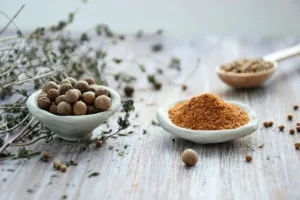

Indigenous Knowledge


The world of beauty is evolving, embracing a shift towards ethical and sustainable practices. Among these practices, sourcing beauty ingredients from indigenous communities is gaining recognition for its positive impact on both the environment and local cultures. By spotlighting indigenous knowledge and sourcing methods, the beauty industry is not only enhancing product quality but also fostering respect for traditional wisdom and promoting a more inclusive and harmonious approach to beauty. In this exploration, we delve into the significance of ethical beauty ingredients sourced from indigenous communities and the rich tapestry of benefits they bring.
Sourcing beauty ingredients from indigenous communities represents a journey of respect, collaboration, and cultural appreciation. It involves forming partnerships that honor the traditional wisdom of these communities, while also providing them with fair compensation for their contributions to the beauty industry.
Indigenous cultures possess a deep understanding of the environment and its resources. Through generations of living in harmony with nature, they have honed an innate knowledge of plant properties, natural remedies, and sustainable harvesting techniques. This wisdom, passed down through oral tradition, is a treasure trove of insights that can enrich the beauty world.
Indigenous communities often inhabit regions rich in biodiversity. By sourcing ingredients from these communities, beauty brands contribute to the preservation of these diverse ecosystems. This practice encourages sustainable harvesting methods that safeguard the environment and maintain the delicate balance of flora and fauna.
Ethical sourcing from indigenous communities empowers local economies by providing a source of income that aligns with their cultural values and practices. This approach encourages self-sufficiency and economic growth, while also fostering a sense of pride in contributing to the global beauty market.
The diversity of indigenous knowledge introduces the beauty industry to unique ingredients that have been cherished and utilized for centuries. These ingredients often have exceptional benefits for the skin due to their adaptability to local environments and climate conditions.
Collaborating with indigenous communities also supports the sustainability of their cultures. It reinforces the value of traditional practices and encourages the transmission of knowledge from one generation to the next. This aspect of ethical sourcing contributes to the preservation of cultural heritage and a more inclusive representation in the beauty industry.
While the practice of sourcing beauty ingredients from indigenous communities is noble, it comes with its own set of challenges. Cultural sensitivity, ensuring fair compensation, and respecting intellectual property rights are critical considerations to navigate this space with integrity and respect.
Brands that ethically source ingredients from indigenous communities have the opportunity to educate consumers about the cultural significance and benefits of these ingredients. This educational aspect enhances the value of the product and creates awareness about the importance of supporting ethical practices.
Consumers play a vital role in driving the demand for ethical beauty ingredients sourced from indigenous communities. By choosing products that align with their values of cultural respect, environmental consciousness, and fair labor practices, consumers directly contribute to the growth of this movement.
The inclusion of ethical beauty ingredients from indigenous communities marks a transformative shift in the beauty industry. It bridges the gap between commerce and culture, promoting respect for traditional knowledge, fostering environmental stewardship, and empowering local economies. As consumers become more conscious of their choices, the beauty industry responds by embracing practices that align with global values of sustainability, cultural diversity, and ethical consumerism. By supporting brands that prioritize ethical sourcing, consumers harmonize their beauty routines with their values, creating a more inclusive and beautiful world for all.
Sustainable Shades For many DIY enthusiasts and design aficionados, a fresh coat of paint is…
Cruelty-Free Solutions for a Healthier You Chronic inflammation can be a relentless foe, disrupting our…
Unleashing Your Brain's Potential In today's fast-paced world, maintaining sharp mental focus and cognitive agility…
Exploring DIY Organic Makeup Fixers For the eco-conscious beauty enthusiast, the quest for flawless makeup…
A Sensitive Exploration The clean beauty movement has taken the beauty world by storm. Consumers…
Taming the Mane Frizz – the bane of smooth hair dreams. It can transform a…
This website uses cookies.